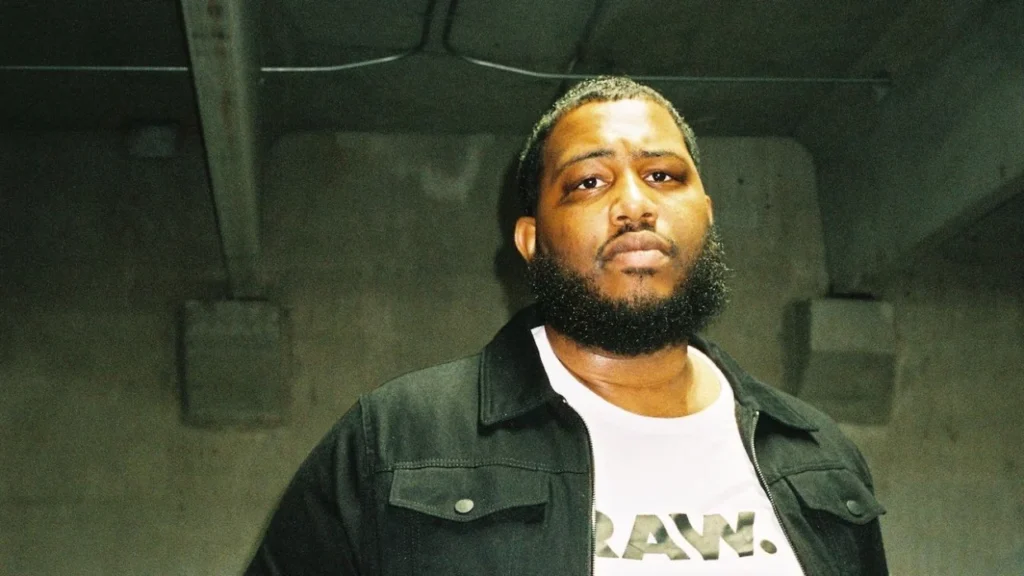Press
Trauma Tone’s Keys to Producing for Today’s Melodic Rap Stars
This article originally appeared on Audiomack.
Soundtracking hip-hop’s biggest wave is no easy feat. Enter: Trauma Tone, producer for Kevin Gates, YoungBoy Never Broke Again, Chief Keef, Money Man, Bino Rideaux, and more of today’s melodic rap stars. You may also know Trauma from his work on Yo Gotti and Rich Homie Quan’s “I Know,” which secured him a Platinum plaque. At 30, the Virginia-born producer has endless respect on his name.
You can find Trauma Tone’s tag attached to YoungBoy’s “Cross Roads,” a duo of tracks on Bino Rideaux’s Def Jam mixtape debut OUTSIDE, and on Kevin Gates’ singles “Dreka” and “Always Be Gangsta.” A Trauma Tone production is marked by driving keys and addictive melodies. These are the earworms poised to become your favorite song without so much as lifting a finger.
Trauma Tone was kind enough to call me up at the top of September to share his production journey and his keys for making beats for today’s melodic rap stars.
Be your own teacher, even if it takes time. “I first started producing in 2002, when my cousin gave me FL Studio. He let me learn on my own, and I’d say from 2002 to 2013, I spent all that time figuring out my sound and who I am as a producer, working with different local artists, and working on music myself. I learned how to find pockets of the beat, how to build beats from hook to chorus, all that stuff.”
Don’t be afraid to reach out. “[My first placement] showed me I need to start reaching out more and trying to find other ways to get to artists. What kept [me] going and not giving up with production? I just love making beats, and I love the come-up. I love the grind and getting on the road, going to different studios, finding artists, meeting in person.”
Don’t be shy. “The biggest hurdle I faced, in the beginning, was trying to network. I didn’t understand how to talk to artists, and I was shy, too. I was always playing the background. Funny thing is, I was in the studio with Akon one day, and basically… This is around ‘I Know,’ and we kept walking past each other in the studio, and I was there for a session with him, and he didn’t know.
“I was just on some shy shit, so my manager told ‘em, ‘This is Trauma Tone, who booked a session with you.’ He told [Akon] the songs I did, and Akon was like, ‘Why you ain’t say nothing? This whole time we been in the studio, and I like your songs. If you would’ve said something before, we could’ve started working.’ That taught me to speak up.”
Create your own feeling. “Me and my collaborators mix that pain with the party vibes, which I feel like creates a whole ‘nother feel. Our style is partying pain, and I think that’s why all the artists we work with gravitate towards our beats. I know how I feel when I’m in the club and that certain song comes on that I can relate to, so I try to recreate that vibe and feeling I had in music, so I can do it for someone else whenever they might hear.”
Chemistry is key. “All [the artists I’ve worked with], except for YoungBoy, they all either reached out to me or I reached out to them. We just like each other’s sounds. That’s the main thing: We all linked up because we admire each other’s sound, and we have good chemistry. I try to work with artists I can catch a vibe with first. That’s why the music comes out the way it does.”
Meet in the middle. “When I’m making beats, I don’t cater. I’m just making what I feel and bulk up on a bunch of beats so I can have them prepared. I don’t go in creating for a specific artist, and they don’t come looking for a specific sound. We both finding something new together.”
Be more than a beatmaker. “A lot of producers help build up the record. A lot of artists, they think we don’t know what we’re talking about and don’t wanna listen to advice, but if you trust the producer, it might take the song to the next level.”
Source: https://djbooth.net/features/2020-09-14-trauma-tone-interview-melodic-rap-stars-producing-audiomack



